The Jewish Tourist: Montreal
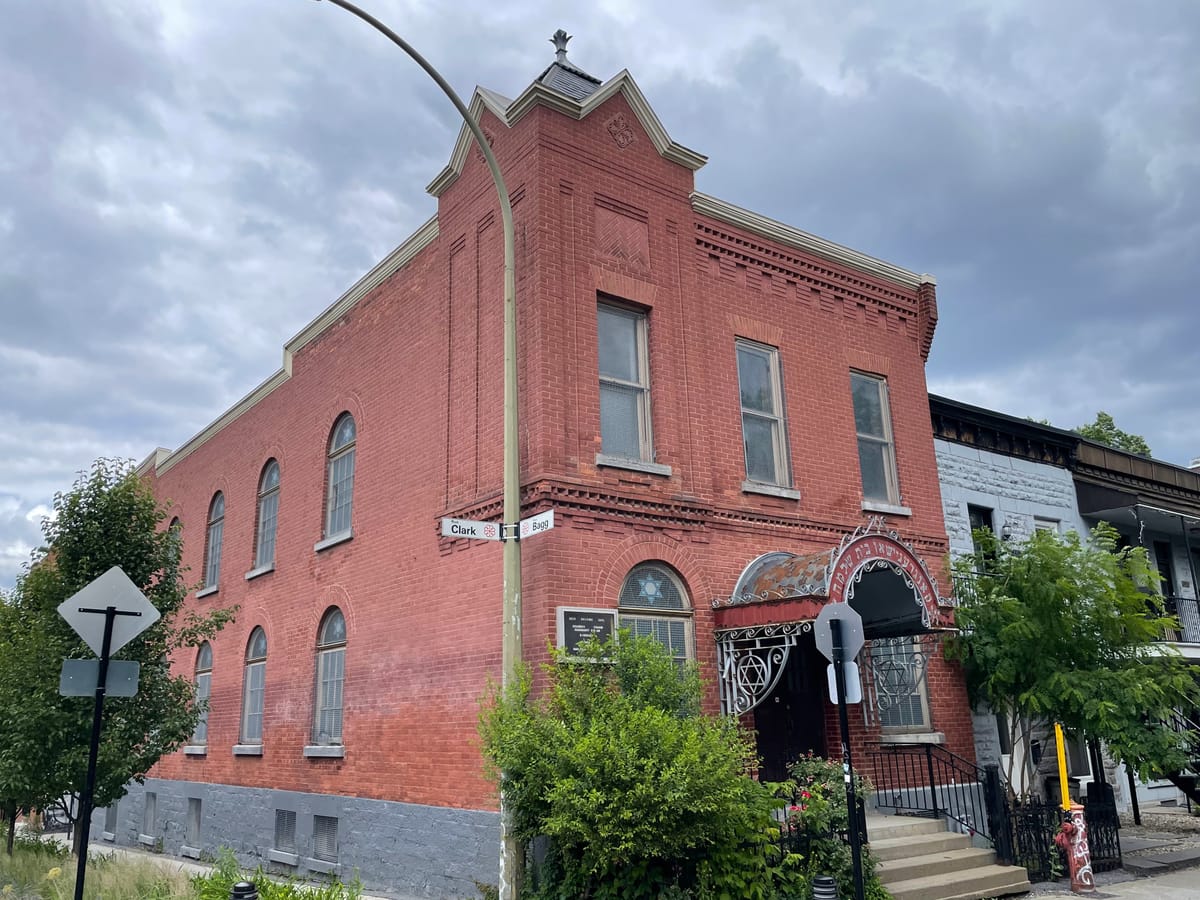
The Jewish Tourist is an occasional series covering the Jewish sights, foods, and experiences I've encountered on my travels. Today we're heading to Montreal, which is Canada's second-largest city and is located in the French-speaking province of Quebec.
If you spend five minutes in any souvenir store in Montreal, you'll come across a postcard, mug, magnet, and/or t-shirt depicting one or all of the city's iconic foods: poutine, bagels, and smoked meat sandwiches. Poutine, a dish made by topping fries and cheese curds with brown gravy, originated in the 1950s at the greasy spoon diners of the agricultural Centre-du-Quebec region—it's since been claimed by all of Quebec and arguably, Canada as a whole.
The other two iconic foods, bagels and smoked meat sandwiches, have their roots in Montreal's Jewish community. Obviously, I wanted to learn more about (and eat) these specialties, so I booked a spot on the Museum of Jewish Montreal's Beyond the Bagel food tour. If you have even a passing interest in Jewish history and culture, I can't recommend this tour enough—in addition to lots of tasty food (seriously, it was enough for lunch and dinner) you'll learn the story of each business you stop at, as well as the history of Montreal's Jewish community and how it has evolved through today. Since it's a museum-based tour, there's a focus on primary sources like oral histories, photographs, and historic newspaper clippings.
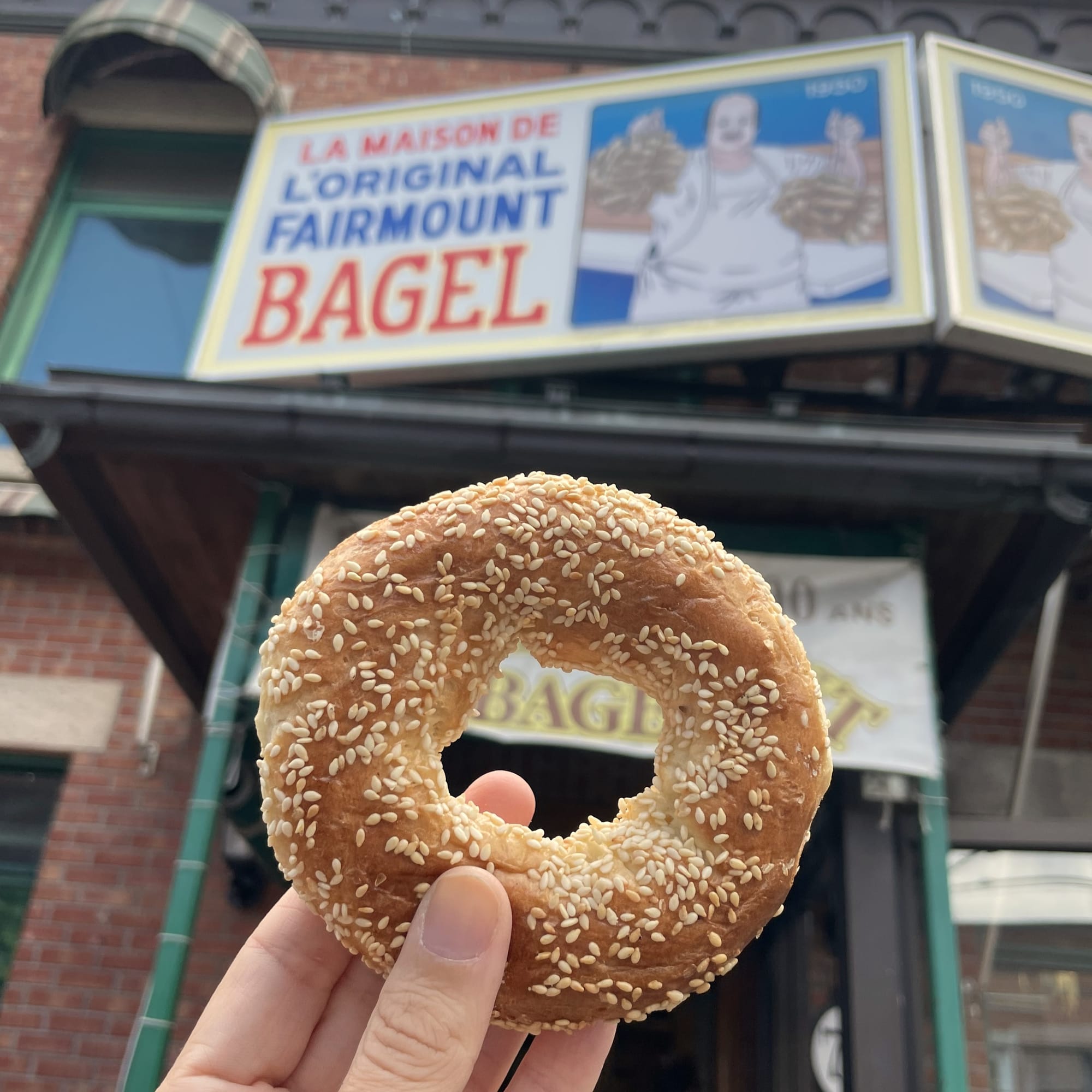
If you're familiar with New York's Jewish history, some of Montreal's story will feel familiar: there has been a continuous Jewish presence in the city since the 1760s, with an influx of Eastern European, Yiddish-speaking, Ashkenazi Jewish immigrants in the early 1900s, many of whom found work in the city's garment industry. After WWII, Montreal became home to one of the world's largest populations of Holocaust survivors, including Hungarian and Czech Hasidic Jews. (Today, Montreal's Hasidic community of over 10,000 makes up a significant portion of the city's 90,000 Jews.) Starting in the 1950s, French-speaking Sephardi Jews began immigrating to Montreal from North Africa. Montreal's contemporary Jewish population is far more diverse than the Ashkenazi bagel-and-smoked-meat paradigm implies, but since the Beyond the Bagel tour explores the historically Ashkenazi Mile End and Plateau neighborhoods, that's what I'll focus on here as well.
Schwartz's Deli is on many tourists' itineraries, thanks to shout outs from Anthony Bourdain and just about every best-of list on the internet. Schwartz's was founded in 1928 by Romanian-Jewish immigrant Rueben Schwartzs, and the simple menu of smoked meat dishes is deeply informed by traditional Ashkenazi techniques. The meat is marinated for 10 days in a secret blend of herbs and spices, then smoked overnight, and finally steamed all day. Since Montreal smoked meat is typically made from brisket, it's leaner than pastrami and not as dense—it's not exactly a light lunch, but it doesn't settle in your stomach the way a New York deli sandwich does.
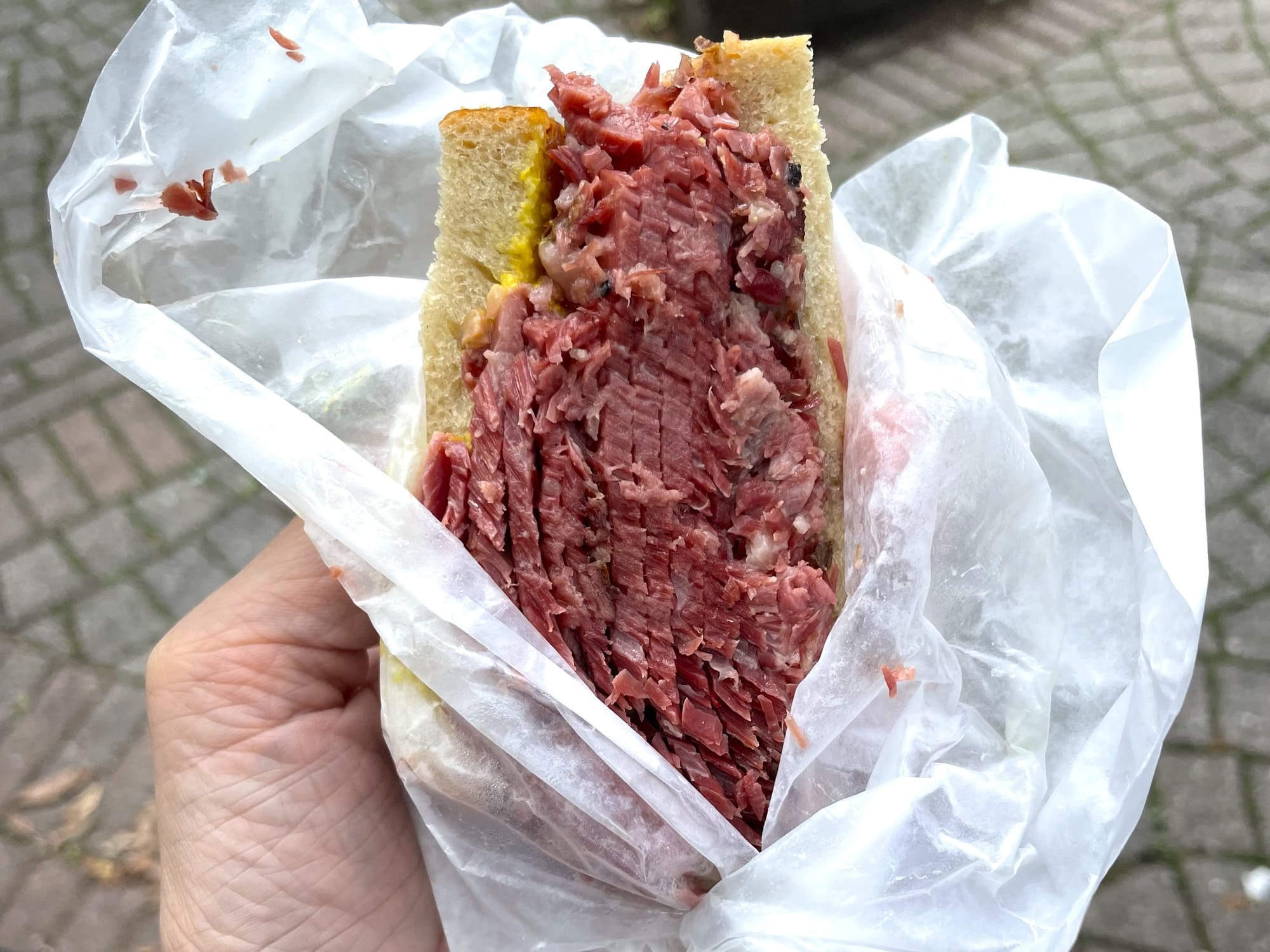
If the line for dine-in seating at Schwartz's is too long, you can get your sandwich to go from the adjacent takeout-only storefront and eat your meal at the shady Parc de Ameriques a few blocks away on Rue Rachel. Be sure to add a pickle and a cherry cola to your order—that's how the locals do it.
Although the food is kosher-style, Schwartz's isn't officially kosher (they let the certification lapse decades ago). Fun fact: Schwartz's has been partially owned by Celine Dion since 2012.
Wilensky's Light Lunch was my favorite stop on the tour. It feels like stepping back in time to 1932, when the lunch counter and soda fountain was founded by Moe Wilensky, the son of Russian-Jewish immigrants. The menu includes all-beef hotdogs and a handful of deli sandwiches, most famously the Wilensky Special: a grilled kaiser roll with all-beef salami, all-beef bologna, and mustard. Sodas are made to order the old-fashioned way, with flavored syrups and sparkling water.
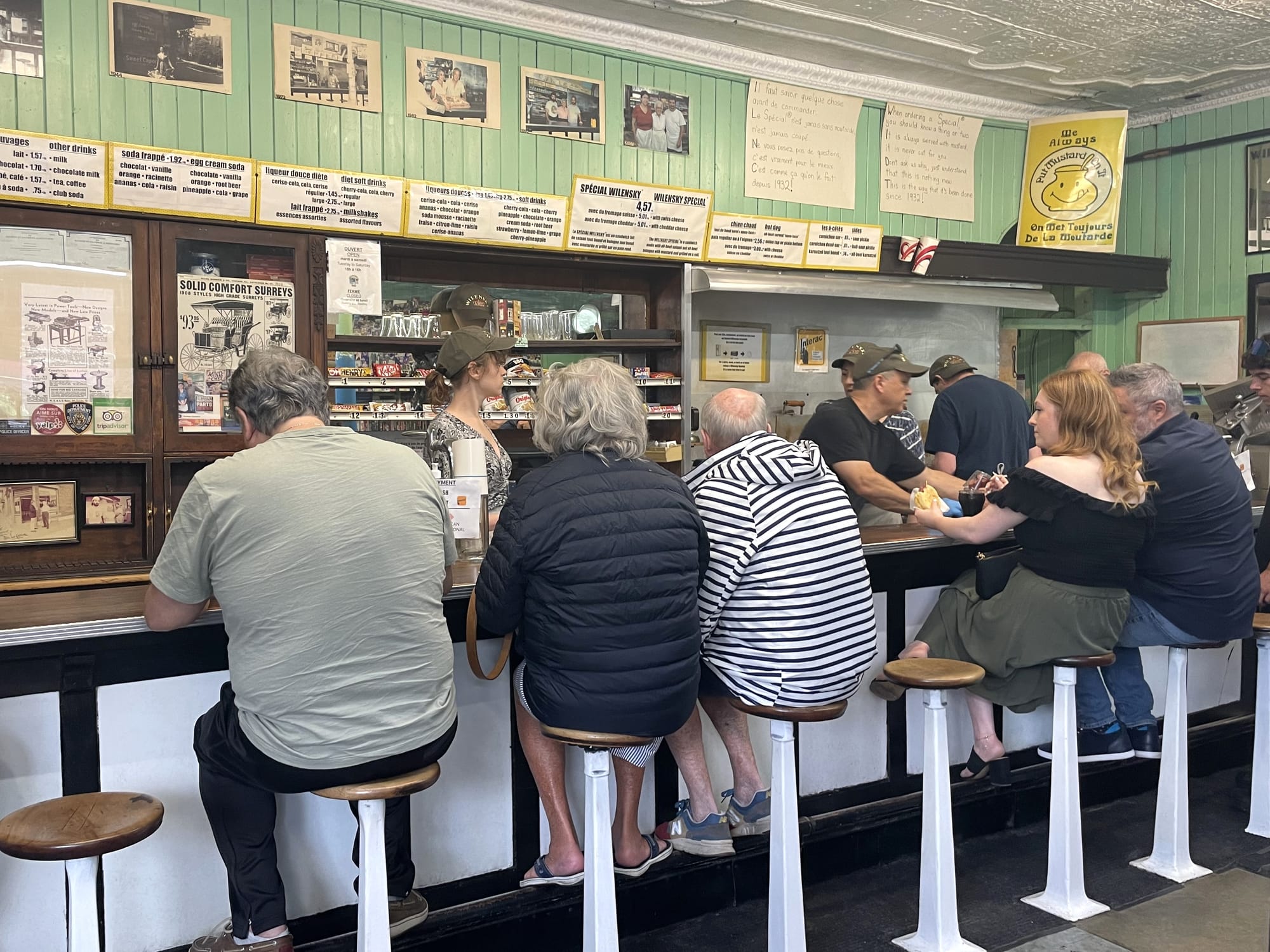
The Wilensky special is delicious (maybe due to the decades' worth of seasoning on the vintage sandwich presses) but the best part is the surroundings—light green wood-paneled walls, a tin ceiling, wooden cabinets behind the bar, well-worn stools, and a handwritten poster with a poem about the Wilensky Special. Everywhere you look, there are vintage ads and photos of the Wilensky family through the years.
The prices at Wilensky's are retro, too—the Wilensky Special costs only $4.57 (about $3.35 U.S.) That's a nod to Moe Wilensky's communist ideals: he wanted to keep prices low for the working class garment workers who patronized his lunch counter, and his children and grandchildren, who own and operate the restaurant today, have maintained the budget-friendly pricing in his honor.
Two bagel shops are longtime rivals for Montreal's best bagel, the ring-shaped bread which originated in the Jewish communities of Poland. St-Viateur Bagel was established by Polish-Jewish Holocaust survivor Myer Lewkowicz in 1957, with longtime employee Joe Morena becoming a part owner in 1974. Today Morena owns St-Viateur Bagel with Marco Sblano, and the company has expanded to five locations. Fairmount Bagel, which was initially founded as the Montreal Bagel Bakery by Russian-Jewish immigrant Isadore Shlafman in 1919, moved to its current location and was renamed in 1949. Today, the bakery is managed by Shlafman's grandchildren.
Both spots have perfected the Montreal-style bagel, with has a larger hole and is denser and sweeter than its New York counterpart. Montreal-style bagels are boiled in honey-sweetened water before being baked in a wood-fired oven, and the traditional toppings are sesame seed or poppy seed.
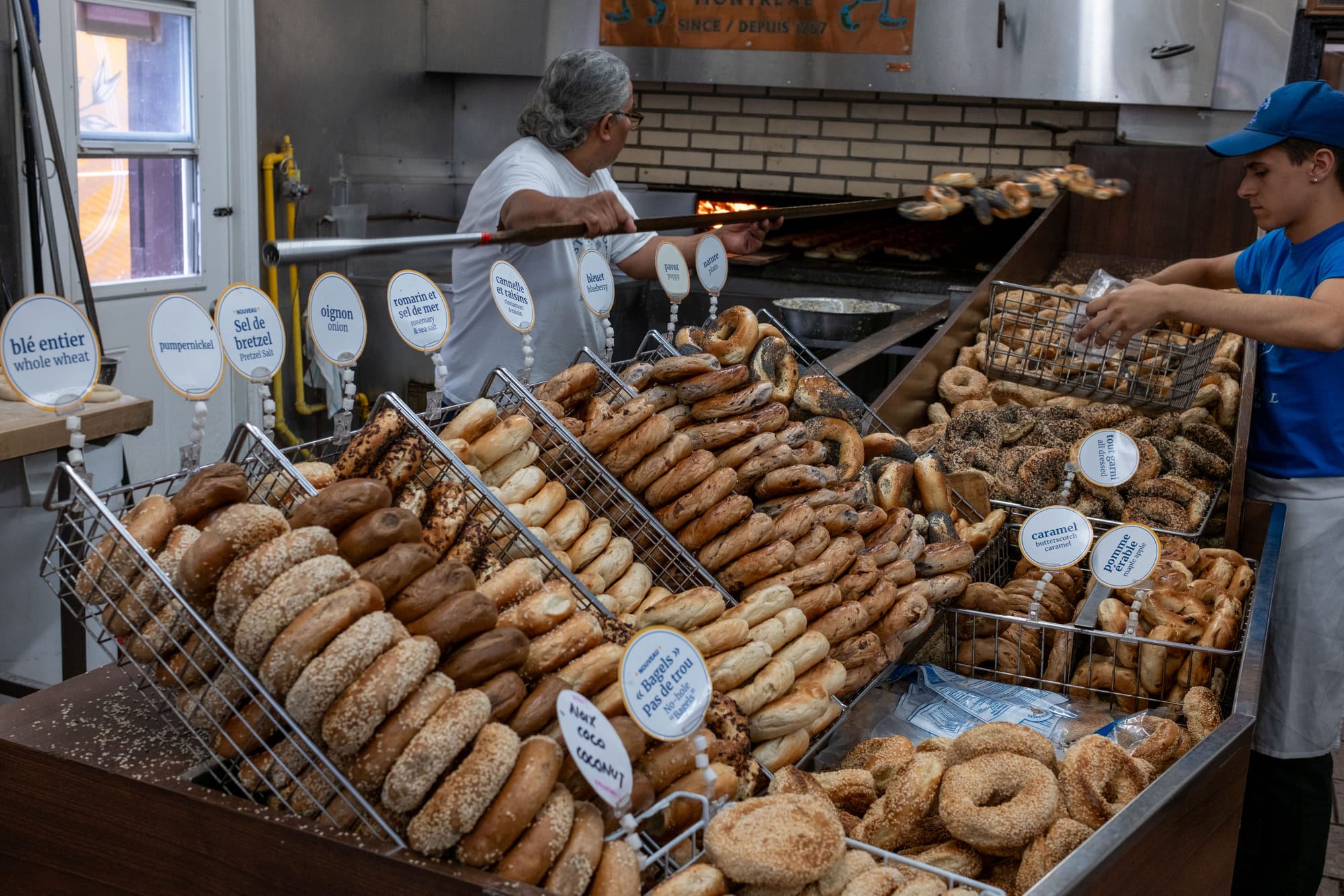
I think it's worth visiting both the original St-Viateur location (263 St-Viateur) and Fairmount Bagel. At St-Viateur, you can watch the bagels being pulled out of the oven on a long wooden paddle and dumped into the bagel trough—they make bagels continuously during the store's opening hours of 6:00am-midnight, so you'll always get a fresh bagel. Fairmount is a charming little shop with antique wooden bakery cases filled with different bagel varieties. Both spots make excellent bagels, but I liked Fairmount's slightly more. They use more malt in their dough for a richer, somewhat sweeter flavor. Try them both side-by-side and pick your favorite.
Most of the Beyond the Bagel food tour was a look to the past, with a focus on legacy spots like Schwartz's, Wilensky's, St-Viateur, and Fairmount, as well as other Jewish-owned businesses and historic synagogues. However, Montreal's Jewish food scene and community has continued to grow and evolve, which was especially reflected by the Jewish bakeries we visited.
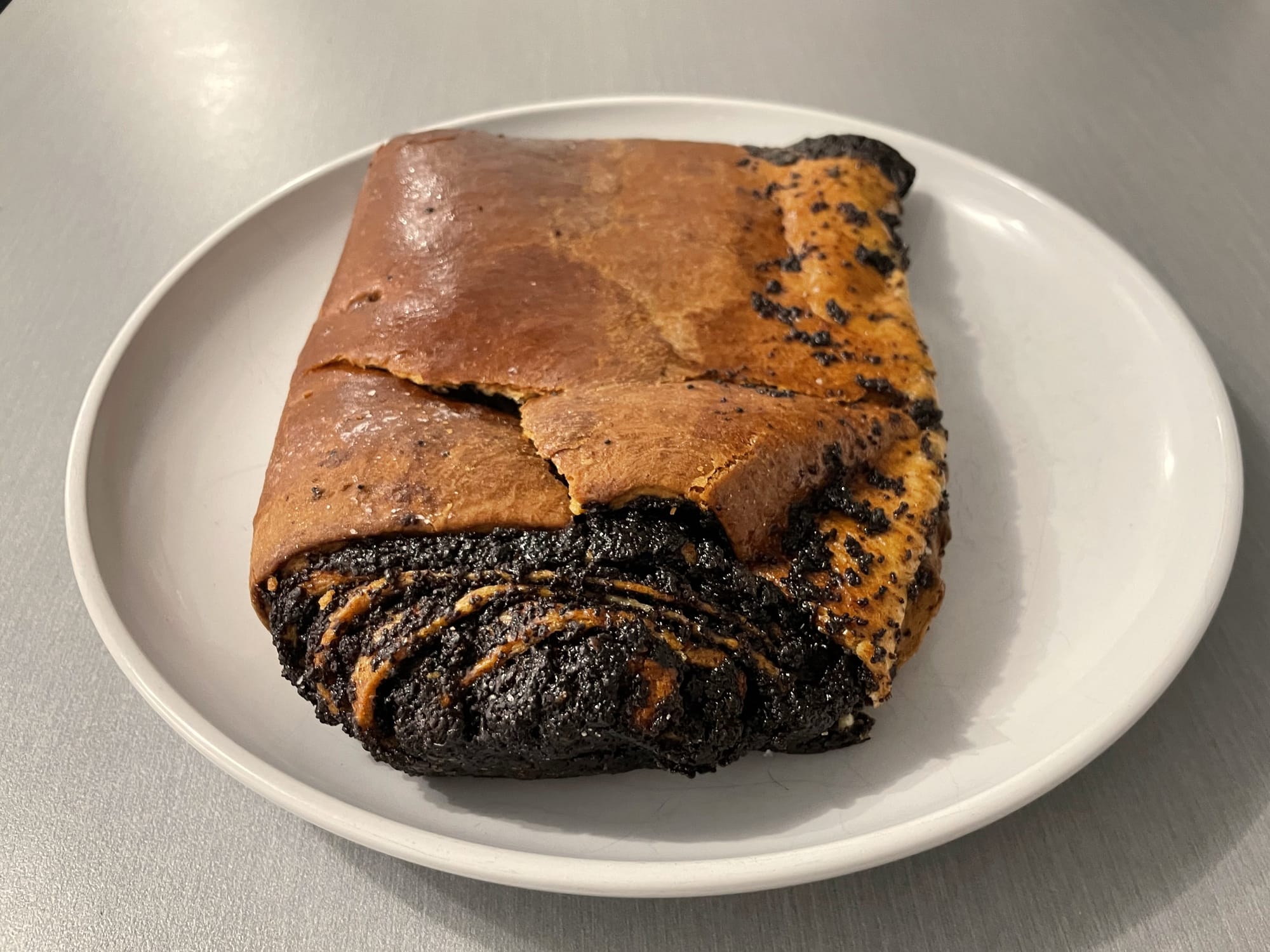
Boulangerie Cheskie/Cheskie's Bakery is located in the heart of Montreal's Hasidic community. Cheskie's was founded in 2002 by New York transplant Cheskie Lebowitz and his Montreal-born wife Malky. It's a New York-style, kosher bakery, and supposedly, the only place you can find black and white cookies in Montreal. Cheskie's offerings span a range of cultures, including chocolate babka, danish, rugelach, doughnuts, cheese crowns, and croissants. I liked the cheese crowns, a flaky pastry folded around a cheesecake-like filling, but I fell in love with the poppy seed kokosh, a dense Hungarian-Jewish rolled pastry with a gooey poppy seed filling.
Hof Kelsten is a bakery and deli that combines French and Jewish influences in a minimal, modern space. It was founded by Jeffrey Finkelstein in 2013 and sells bread to many of Montreal's top restaurants. Their chocolate babka is straight up marvelous: a round loaf of buttery dough with bittersweet chocolate swirled throughout, forming a molten pool at the bottom of each slice. I wish they shipped it to the U.S.
The souvenir mugs and t-shirts don't lie: although Montreal's Jewish community accounts for only 2.4% of the city's population, when it comes to delicious food, the Jewish influence is incalculable.
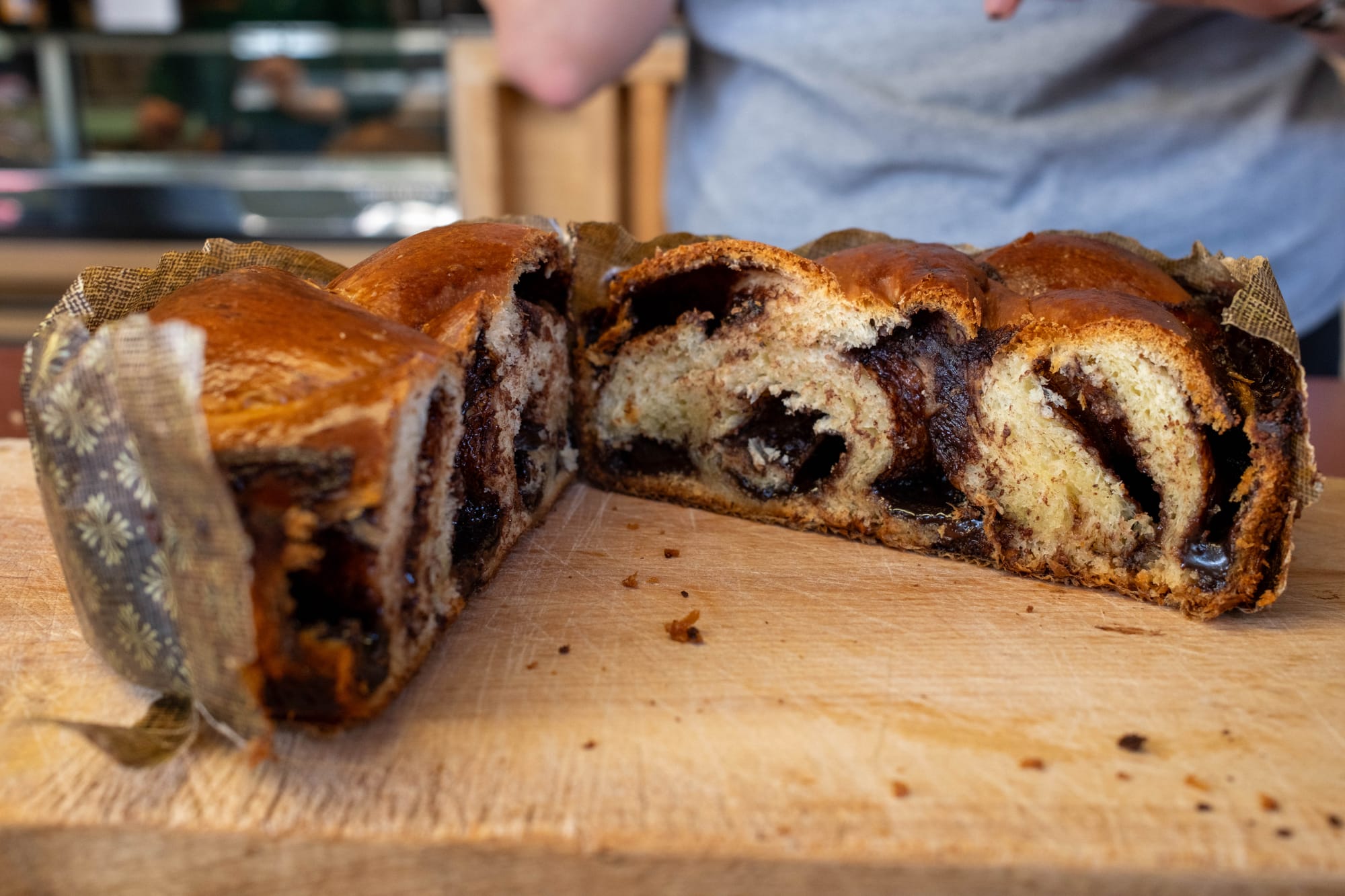
Additional Jewish sights in Montreal:
The Musee du Montreal Juif/Museum of Jewish Montreal offers walking tours of historically Jewish neighborhoods, including the Beyond the Bagel food tour I took. The museum's physical space exhibits contemporary art focused on Jewish culture and identity, and the museum's website is a rich resource for oral histories, maps, and other information about Jewish Montreal.
The Montreal Holocaust Museum tells the stories of Jewish communities before, during, and after the Holocaust, through the lens of Montreal survivors.